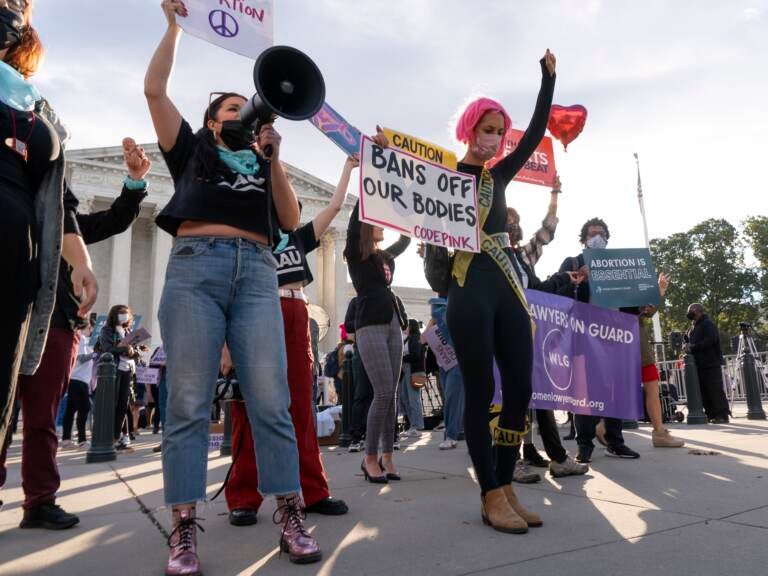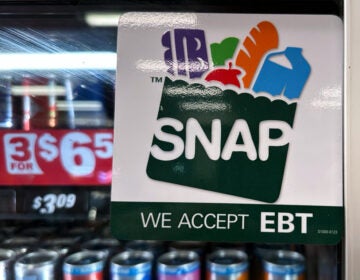Supreme Court justices seem inclined to side with abortion providers in Texas

Pro-choice and anti-abortion activists rally outside the Supreme Court, Monday, Nov. 1, 2021, as arguments are set to begin about abortion by the court, on Capitol Hill in Washington. (AP Photo/Jacquelyn Martin)
The Supreme Court appeared inclined Monday to allow abortion providers to challenge a controversial Texas law that in effect bans all abortion after six weeks of pregnancy, which is before most women know they are pregnant.
In more than three hours of oral arguments, the court heard challenges from the U.S. Justice Department and abortion providers over the law. The court’s conservative majority appeared skeptical of the Biden administration’s challenge to the law.
At issue in the case was whether a state can nullify a constitutional right — in this case the right to abortion — by delegating enforcement not to state officials, but to private citizens who are authorized to sue abortion providers and anyone else who aids or abets an abortion.
Justice Brett Kavanaugh, a conservative, said the Texas law “exploited” a loophole in court precedent and asked if the court should “close that loophole.”
This is the second time that the novel Texas law has come before the court. In a midnight ruling two months ago, the court, by a 5-4 vote, allowed the law to go into effect, over the protests of the court’s three liberals and its conservative chief justice, John Roberts.
Indeed, those who wrote the law have boasted about how it is designed to avoid review in the federal courts.
Specifically, the Texas law, known as S.B. 8, bans abortions after 6 weeks, when many women don’t yet know they are pregnant. It contains no exceptions for rape or incest, and it has only a limited and ill-defined exception for a “medical emergency.” But most importantly, the law’s enforcement mechanism is to allow anyone who aids and abets an abortion to be sued by any private citizen for a minimum of $10,000. As a result, abortions in Texas have come to a virtual halt.
On Monday, the case was back before the Supreme Court, which has expedited briefing and arguments even more quickly than it expedited the case against then-President Richard Nixon at the height of the Watergate scandal in 1974.
And yet a majority of the court has let the Texas law remain in place even as it is being challenged as unconstitutional.
The government contends that it has an interest that supersedes state interests — namely, protecting the supremacy of the Constitution and preventing the state from nullifying the Supreme Court’s constitutional rulings. In addition, the government maintains that it has legal standing to intervene because the Texas law interferes with federal employees, contractors and programs that under federal statutes are charged with facilitating and paying for abortions.
9(MDAzMzI1ODY3MDEyMzkzOTE3NjIxNDg3MQ001))




